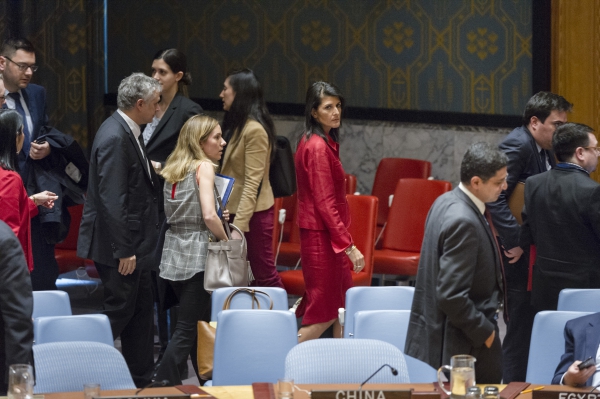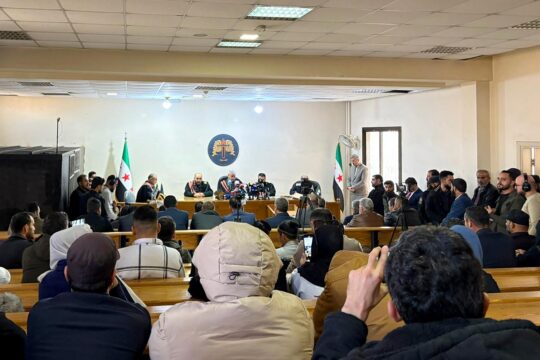International justice saw a new failure this week on Syria. The UN Security Council was unable to agree a Resolution after the “chemical weapons” massacre at Khan Cheikhoun which left dozens dead and injured, including children.
UN Secretary General Antonio Guterres called it a war crime, saying that “international humanitarian law has been violated”. Nevertheless opposition from Russia, backer of the Syrian regime, and China prevented a Resolution condemning this massacre blamed on the Syrian air force. This blockage in the UN Security Council has also stopped any moves to refer Syria to the International Criminal Court. We should also note that the US military intervention is outside the legal rules set by the UN.
Problems at international institutions were also reflected this week with South Africa’s hearing on Friday before the International Criminal Court (ICC) for failure to arrest and transfer Sudanese President Omar Al Bashir, wanted by the Court for war crimes committed in Darfur. In 2015, Bashir came to Johannesburg for an African Union summit and was able to leave a free man, despite an order against this by a South African court, ruling on a complaint from a human rights NGO. JusticeInfo’s correspondent at the ICC Stéphanie Maupas analyzes the legal issues raised by this case which involves international obligations to arrest Bashir, respect for South African law and immunity for heads of State. After this incident, South Africa announced it would leave the ICC, a decision reversed at least temporarily by another decision from a national court.
Rwanda’s tribute to “upright Hutus” during commemorations to mark the 23rd anniversary of the 1994 genocide is more positive. JusticeInfo’s correspondent in Kigali Emmanuel Sehene Ruvugiro cites the case of Roza Mukarurinda. “This Hutu countrywoman from the village of Kinazi in southern Rwanda had neither weapons nor money at the height of the genocide in 1994,” he writes. “Guns could drive back the killers and money could persuade them to put off a murderous attack for several days. Roza had only her mother’s heart. She took in a Tutsi baby girl whose parents had just been massacred. In order that this child could survive, she had to wean her own child prematurely to breastfeed the baby she called Irizabimbuto, literally meaning the egg that will be fertile. Twenty-three years later, Irizabimbuto is a beautiful young woman of 23 who is finishing her studies at a Kenyan university.” Roza explains today that “God gave red blood to Hutus and Tutsis alike”.
Also this week, Algerian writer Kamel Daoud pays a bittersweet tribute to his Tunisian neighbours. In his book “I dream of being Tunisian”, Daoud analyzes developments in Tunisia from the fall of the dictatorship to public hearings at the Truth Commission in November 2016, including the elections of 2011 and 2014, publication of a new Constitution in January 2014, and also looking at its women, Islamic militants and terrorist attacks. “This is probably what makes him say in the preface to his book that `Tunisia should not exist`,” writes JusticeInfo’s correspondent in Tunis Olfa Belhassine. And she quotes further from Daoud, who says: “We know that it is destined to fail, to die, to devour us and prove that fatalism is an easy route. This country needs not to overcome its problems, because that would prove that we too could have succeeded.”







